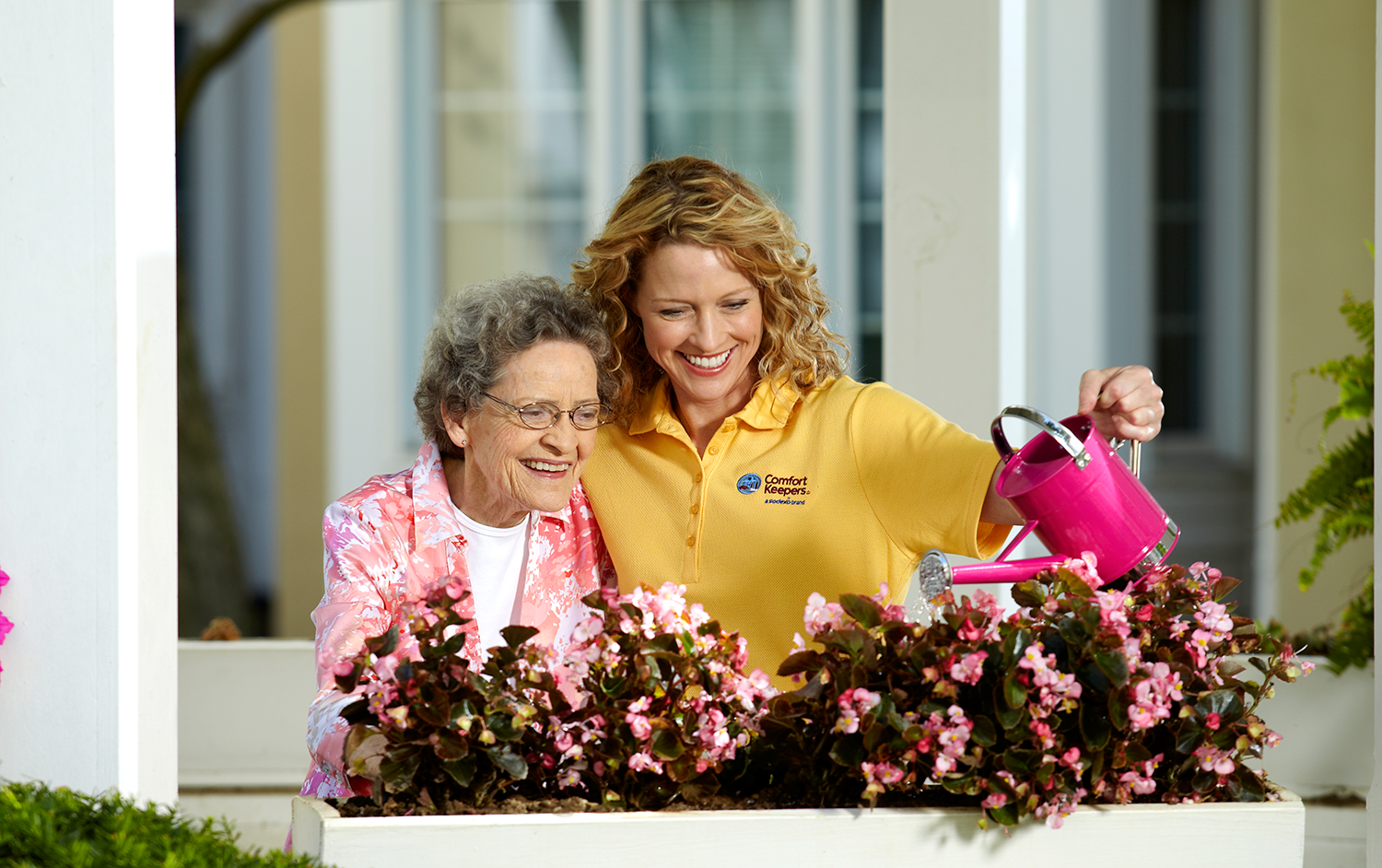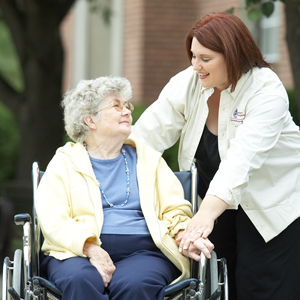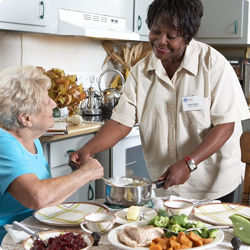Elder Abuse – An Epidemic in Canada We Can All Work To Prevent
Senior Health and Wellbeing | May 9, 2023
Elder Abuse Prevention | Earlier this year, a report was released in Ontario showing that staff abusing residents in long-term care facilities had gone up 148% in the province between 2011 and 2016. When you do the math, in Ontario alone it works out to six seniors living in these facilities being abused every day.
That’s a nauseating statistic. Of course, choosing to retire at home is a way to protect yourself or loved ones against abuse from strangers and staff in retirement homes, but it is not a foolproof guarantee of safe and loving care. Tragically, in 32% of reported elder abuse cases in Canada, the offender is a family member.
These figures become more tragic when paired with the fact that many seniors do not (or cannot) speak up for themselves, and can actually feel very guilty or responsible for their own mistreatment.
It’s common when we think of “abuse” to have an image of someone being physically harmed. Those atrocities do happen to seniors far too frequently, but abuse is not restricted to hitting, pushing, pinching or sexual assault. Being able to recognize when someone is being mistreated isn’t always as simple as seeing physical cues, like bruises or cuts.
Types of Elder Abuse
Abusive Neglect and Seniors
Neglect is abuse that takes a heavy toll on seniors, especially those more reliant on others for basic care due to illness. Denying access to bathing, under-feeding, skipping medications, or not helping seniors to change clothes, brush their hair or care for their teeth are all examples of neglect that will have a profound effect on health and wellbeing. Furthermore, the harmful effects of neglect are cumulative, eventually manifesting as poor hygiene, extreme weight loss, concealed bed sores, and a marked lack of self-esteem in victims.
Senior Psychological and Emotional Abuse
Emotional abuse is devastating at any age, but for seniors who are already experiencing many changes to their lifestyles, their roles in their communities as they age, and changes to their emotional states in relation to illness or depression, it can be doubly harmful.
Emotional abuse could be swearing, name calling, scaring or berating a senior behind closed doors. It can also come in less obvious forms, like deliberately withholding hearing aids or eye glasses, intentionally confusing or “gaslighting” a senior, or intentionally embarrassing a senior publicly. Anything that puts a senior’s dignity at risk on purpose constitutes psychological abuse. Fear and social withdrawal is a common symptom.
Senior Financial Abuse
Seniors are at a great risk of financial abuse, which can come in many forms, especially with new technology. Many have had their accounts drained, second mortgages applied to their homes, credit cards taken out in their names, or have loaned large sums they cannot afford to family members.
This year, there has also been a rash of scam callers who pose as the CRA, who threaten and lie on the phone saying the individual needs to pay taxes or face jail time. Read more from Retire At Home blog about Financial Abuse here.
What isn’t abuse?
Elder abuse involves deliberate power and control with the intention to harm or cause damages or losses to a senior citizen. It is not uncommon that a senior is frustrated at being made to do something they do not want to for their own benefit – such as attending a medical appointment for continued, quality health care. This is not abuse. Also, accidents can happen – an isolated incident of a sanitary pad going unchanged for a very short period of time does not imply consistent neglect. In some cases, caregivers are required to be firm, with kindness and patience, and they are also human, too.
Who is most vulnerable, and why?
Older women are disproportionately at risk for elder abuse in Canada, specifically by family members. Seniors with mental illnesses or neurological disorders are at a great risk for abuse as well, as they are not always able to communicate clearly, or are not taken seriously when they do.
Caregiver burnout is a very real and serious issue, and check-ins with caregivers are crucial to see if they are becoming stressed, impatient, angry, or apathetic to a senior in their care. This can be especially true for family members who are acting as caregivers, but are not trained or truly prepared to serve as a caregiver and are doing so out of necessity.
What you can do if you suspect elder abuse is taking place
If you think someone is being harmed by their family or caregiver, proceed with caution. Simply accusing without proof can create a worse situation for the senior in question. Some people have chosen to set up cameras to monitor or check in to see what goes on day-to-day.
If you have evidence of abuse taking place, there are situations where reporting is mandatory, as in cases when they cannot advocate for themselves, and ideally, you could reach out to their doctor immediately.
You can also choose to contact the police, however, you may want to discuss this step with the senior you are looking to protect from harm in advance. As with domestic violence, victims frequently have complex emotions regarding their abuse and may need to be supported and consulted before their privacy is interrupted in this manner. In cases where a senior is being abused by a family member, they will often be resistant to pressing charges. The important thing is to ensure the senior is safe, but that can take many forms, and respect for their wishes is necessary.
Comfort Keepers® Georgian Triangle Can Help with Interactive Caregiving™
If you are concerned about the health and well-being of your aging loved ones we can help. Comfort Keepers®’s trained caregivers help provide senior clients with the highest quality of life possible to keep them happy and healthy at home. Our Interactive Caregiving™ provides a system of care that addresses safety, nutrition, mind, body, and activities of daily living (ADLs).
What’s more, our trained caregivers are selected with one specific quality in mind: empathy. Care that is empathetic is care that starts in the heart, and it allows us to meet our client’s exact needs. Learn more about our unique service offering Dementia Care and Palliative Care by contacting the Comfort Keepers Georgian Triangle office.
Comfort Keepers Georgian Triangle, is pleased to announce that we are a recipient of Accreditation Canada’s, Accreditation Primer Award. Accreditation is an intensive process in which an organization’s processes, policies, and procedures are examined by industry experts against a set of quality standards. To achieve accredited status, Comfort Keepers offices met or exceeded the rigorous standards for Home Care companies, as defined by Accreditation Canada.
If you live in the Collingwood, Midland, Owen Sound area, contact Comfort Keepers at (705) 293-5553, or email us at georgiantriangle@comfortkeepers.ca. Comfort Keepers Georgian Triangle is here to help you and your loved ones get the best care possible.
Individualized Home Care Options
Long-Term Home Care, 24 Hour Home Care & Short Term Care Options Customized for You







